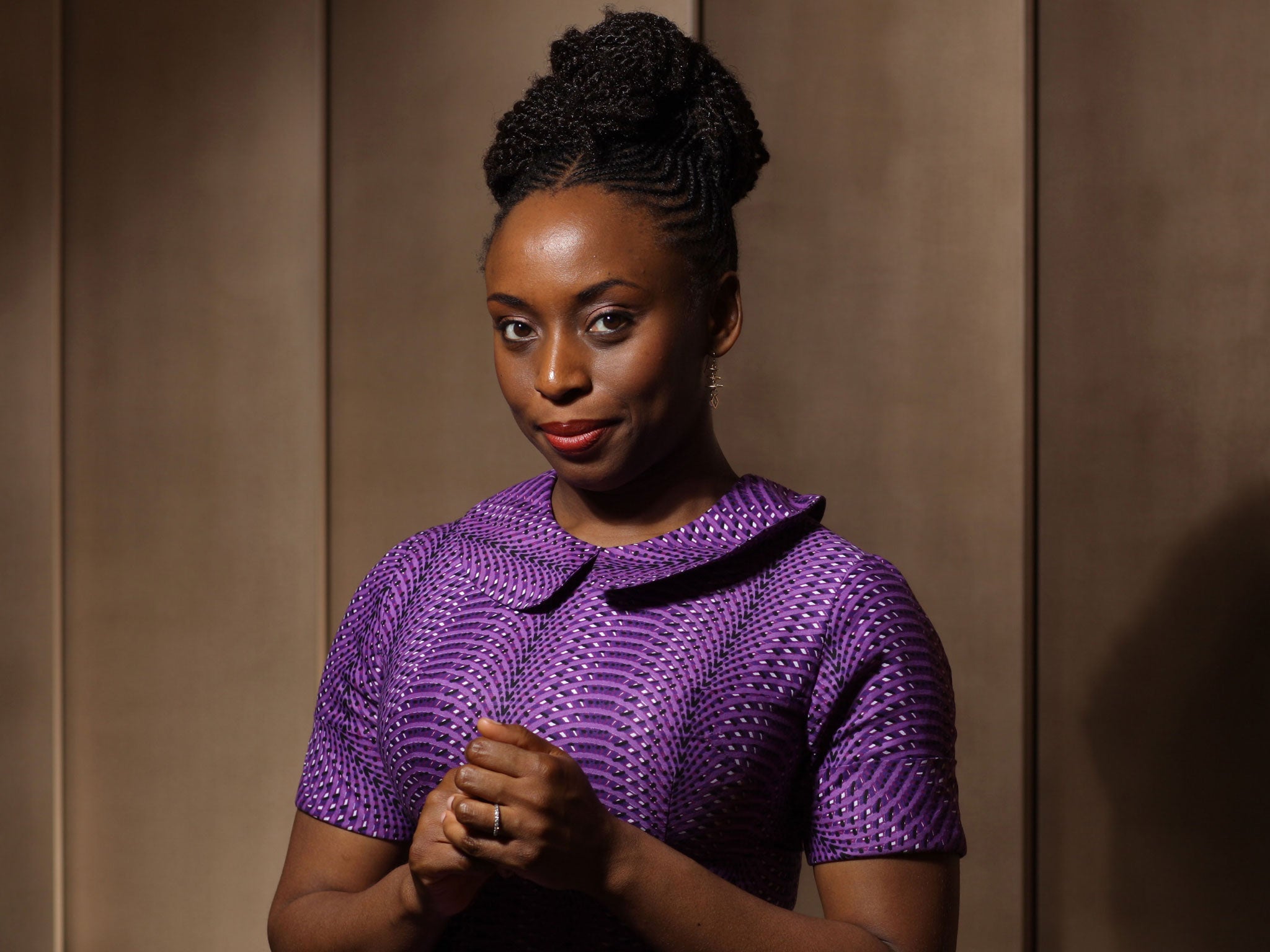Chimamanda Ngozi Adichie is right – the way we use social media is killing the art of conversation
People no longer feel free to ask questions, respectfully challenge beliefs or just generally speak their mind – this is a dangerous conundrum to be in


Your support helps us to tell the story
From reproductive rights to climate change to Big Tech, The Independent is on the ground when the story is developing. Whether it's investigating the financials of Elon Musk's pro-Trump PAC or producing our latest documentary, 'The A Word', which shines a light on the American women fighting for reproductive rights, we know how important it is to parse out the facts from the messaging.
At such a critical moment in US history, we need reporters on the ground. Your donation allows us to keep sending journalists to speak to both sides of the story.
The Independent is trusted by Americans across the entire political spectrum. And unlike many other quality news outlets, we choose not to lock Americans out of our reporting and analysis with paywalls. We believe quality journalism should be available to everyone, paid for by those who can afford it.
Your support makes all the difference.Wherever you find yourself on the political and ideological spectrum, in this social media age – if you wobble on the tightrope – there will always be a mob of ideological puritans, judges and juries waiting for you to fall to your demise.
Being a proud British Nigerian, I was brought up to believe in free speech, to say what’s on my mind and be truthful about it. However, in the same breath, I was taught that every action and every word I say has a consequence for myself and those connected to me. “Remember the family you come from” was the phrase given to me by my mother that has rung in my head since primary school.
In short, a little self-censorship to ensure one is being truthful, accurate and behaving in good faith will never go amiss. However, in her latest essay, Chimamanda Adichie is right – the court of social media has steroid-pumped this notion to the point where people no longer feel free to ask questions, respectfully challenge beliefs or just generally speak their mind. This is a dangerous conundrum to be in. Particularly if you hail from a culture (or at least a nationality) that believes in democracy, of which free speech is one of the oldest – and arguably, the most important – of the pillars.
Back in 2017, Adichie found herself in a social media storm where she was quoted out of context and appeared to be unsupportive of trans rights. In her latest essay, she refutes that claim – which has unfortunately and wrongly stuck to her reputation four years on.
With her razor-sharp command of language, she bases her essay on a case study of an unnamed “Bright Young Nigerian Feminist”; who she took under her wing for a short period of time, but later details a betrayal of friendship which played out on Twitter. Of the behaviour of certain young people today, she says: “A passionate performance of virtue that is well executed in the public space of Twitter but not in the intimate space of friendship… People who claim to love literature – the messy stories of our humanity – but are also monomaniacally obsessed with whatever is the prevailing ideological orthodoxy. People who demand that you denounce your friends for flimsy reasons in order to remain a member of the chosen puritan class”.
Therein lies the issue: our dealings with those outside of the “prevailing ideological orthodoxy”. The problem with humanity is the mainstream, and how we relate with those who find themselves on the fringes. History has shown us that there have been horrendous ways in which we humans have done this – at best a poor attempt to relate, and at worst, schemed to snuff out completely. Diversity of thought, opinion and behaviour has always been a tricky issue to handle.
However, in 2021, humanity is supposed to be at its most developed; and therefore, in my opinion, should be more understanding of the plethora of elements that constitute being human. This includes a wide range of perspectives, behaviours – and the ability to challenge that wide range in good faith without fear of your reputation being irrevocably damaged.
There’s no doubt social media companies are treading a thin line in judging whether to ban people who are outright being abusive, and those who may simply be challenging mainstream thought on a particular issue and have ruffled feathers in the process. The issue, however, goes beyond extreme examples of which social media companies have to involve themselves. This is about the very art of discussion being under threat.
From discussion comes all forms of creativity, knowledge-sharing and individual enlightenment that has the potential to change and improve the world. Social media has allowed growing mobs of people – under the guise of morality crusaders with cult followings or anonymous profiles set up within minutes – to viciously take down anyone who doesn’t fall into their line of thinking. Why is that?
Clearly, the balance has tipped on the impersonal nature of communicating online. What once was used to enjoy speaking to people in far flung corners of the earth has now emboldened so-called “keyboard warriors” to use their words like arrows to “cancel” views, philosophies and at times – inadvertently – the very person themselves.
Dare I say, this was not what the internet was created for.
We as individuals need to do better. It is true, social media platforms have a responsibility to catch those inciting hatred, however, the greater responsibility is on us: the people. We all must be able to use these platforms responsibly – to hear and discuss viewpoints of those who may oppose us in a respectful manner and without fear.
Twitter and other platforms have given us an amazing opportunity to learn from one another, expand our knowledge of the fantastically imperfect world we live in, broaden our horizons and – hopefully – make us better people in the process. But we also cannot be ignorant of the fact that if we know a topic is sensitive and insist on barging in guns blazing with less than sensitive language, we must be prepared for a – I stress – reasonable response from those it may have irked.
William Hazlitt said, “the art of conversation is the art of hearing as well as of being heard”. Without one, there cannot be the other – and therefore no conversation can exist. And after the year we’ve had, who would want to live in a world with no conversation?
Join our commenting forum
Join thought-provoking conversations, follow other Independent readers and see their replies
Comments